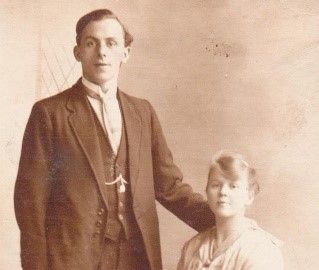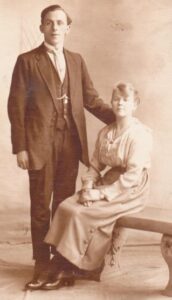Lost, Missing, Hiding? Why Can’t I Find My Ancestor in the English Census?
 4
4Aug

Anyone researching individuals and families in the 19th and early 20th centuries will probably have a love/hate relationship with the census. We love the information about family relationships, locations, birthplaces, ages and, occasionally, insights in to mental and physical health challenges of our families.
On the other hand, the census can be extremely frustrating! We know their names, we know their family members, we know where they should be, we are sure they must be there, but…We can’t find them!
What’s the problem?
When you are struggling to find your missing person, consider why he may be hiding. We will use the term he for convenience. Substitute she as appropriate.
Here are just a few of the reasons why we can’t find our people in the census:
- The information was incorrectly indexed – we love the convenience of indexed records but they are not perfect! More about this later.
- Was he in service? The person completing the census form or giving the information may not have known where your person was born or his exact age.
- Was he incarcerated? The person completing the form may only use initials, or may not have known, or cared, where the person being recorded was born or his exact age.
- Was he in a workhouse? Similar problems to those who were incarcerated.
- Was he in the military? Again, the person completing the form may only use initials or may not have known where the person being recorded was born. You may find a listing where all the soldiers appear to have been born in the same place, often simply where they were presently billeted.
- Was he illiterate and relied on someone else to fill out the form? A neighbor or even the enumerator may have filled out the form, depending on the year of the census. Either way, consider the age variants, spelling problems and birth location issues that might have occurred.
So what do the above problems mean for us?
It means that we have to think “outside the box.” Don’t expect to find everything recorded accurately.
- Begin your search with as little information entered as possible.
- Use spelling variants.
- Use wildcards.
- Be willing to search with “wiggle room” for birth years.
A couple more possibilities for missing individuals:
- Was he simply out of the country? We don’t expect our ancestors to have travelled out of the country but they did – for business or pleasure.
- Was he a sailor? Even an overnight trip on a small fishing boat may cause your person to be missing from the census.
- Was he unwilling to fill out census? Many people were suspicious of the census taker and the census in general. Some people refused to complete the census because of a political or social opinion – most famously, suffragettes refused to complete the 1911 census forms.
What’s in a name?
You know your ancestor’s name, right? He’s John Brown, he’s always been John Brown, but what if his name is a little more unusual? Searching the census for an ancestor with an unusual name can be an interesting experience!
Mary Ann Trevatt married my relative, Albert Edward Minting. Her father’s name is shown as Charles on the marriage record[1].

Mary Ann’s baptism record confirms that her father’s name is Charles[2].

Searching census records, in an attempt to find Mary Ann’s siblings, and more about her parents, proved to be a lot more interesting. Searching transcriptions, I found:
1891 father of Mary Ann = Henry E Levak
1881 father of Mary Ann = Henry C Trevatt
1871 – father of Mary Ann = Charles H. Tresatt
1861 – prior to Mary Ann’s birth = Harvey C Truvatt
1851 – Prior to Mary Ann’s birth = Harry Prenatt
They really were all the same man!
Website indexing can be very useful but ALWAYS look at the original.
Intentionally tricking us or just a strange course of events?
Let’s look at a family, living in a small village, in 1861, 1871 and 1881, in simplified census records.
1861 census

1871 census
The Brown family cannot be found. It’s quite possible that Elizabeth, William and Robert may be living independently. Possibly Mary Brown had died, but where are Charlotte and Godfrey?
Let’s look at a family in the same village where the Brown family was living in 1861.

Do you see any helpful clues?
1881 census
This time we have two census records to review, still in the village.


Have you determined what has happened during 20 years? Mary Brown, widow, married a man named Peter Jones between 1861 and 1871. By 1871 Mary’s oldest children have left the family home. Mary’s younger children, Charlotte and Godfrey, have been recorded with the last name Jones (their step-father’s name). By 1881, Mary has died, Peter Jones is a widower and he is being visited by Charlotte, his step-daughter, who is now married. Godfrey has returned to his correct last name, Brown, and is living in the same village with his wife Susan.
Lost and never found
Sometimes our searches are frustrated not because our ancestors are hiding but because the records where they were recorded are not available. The 1861 census for England and Wales is notoriously challenging due to many missing records. The website, www.findmypast.com, has a very useful chart showing which parishes are missing from the census of England, Scotland and Wales for every census year. Census information is often added to websites, and the list may not be totally updated, but, if you can’t find your ancestors where you “know” they should be, consult the list at www.findmypast.com/articles/census-for-england-wales-and-scotland-missing-pieces. The information is listed by piece number, county and parish.
Here are some examples of what the report holds:
- 1841 census – includes a list of the 27 parishes missing from the county of Cheshire.
- 1851 census – includes a list of the 21 parishes missing from the county of Essex. Many records damaged or destroyed by water for the city of Manchester.
- 1861 census – “There are a number of enumeration books missing, or parts of enumeration books (usually missing start or finish), from the 1861 England, Wales & Scotland Census.” Findmypast has a chart of books affected, showing (M) for those entirely missing and (I) for those incomplete. According to the National Archives, there are 867 parishes missing from the 1861 census[3].
- 1871, 1881, 1891, 1901 and 1911 census records are comparatively complete.
- 1921 census is a work in progress – if you can’t find you family in 1921, wait a while and check again.
A few final thoughts
- Missing from the census might be a clue for an unknown death in the family. Consider this quote found on findmypast.com regarding the 1921 census, “Thanks to the additional information recorded on the status of parents and children, the Census also reveals the devastating impact the war had on families with over 730,000 fatherless children being recorded.”[4]
- Be very careful not to trust names as found in the census – in my early days, researching my own family, I spent quite a long time down a rabbit hole trying to trace my intriguing relative “Minting the Marvel,” whose father was, supposedly, the first person ever to ride a unicycle[5]. I found him with the last name Minting, a “visiting artiste,” in the U.S. census only to find, after tracing them back to England, that their actual name was Martin, not Minting.
- Don’t limit yourself to one website when doing your census research. Variations in indexing and varying quality images may make all the difference to your success.
The expert professional genealogists at Price Genealogy have years of experience working in English censuses and we can help you with your hard-to-find ancestors and break through to earlier generations.
Lindsey
[1] London, England, Church of England Marriages and Banns, 1754-1938. www.ancestry.com
[2] London, England, Church of England Births and Baptisms, 1813-1923. www.ancestry.com
[3] Information regarding missing census records. www.findypast.com
[4] Information regarding deaths during the 1st World War. www.findmypast.com
[5] Howie Cohen’s Everything Bicycles Collection. https://proteanpaper.com.
